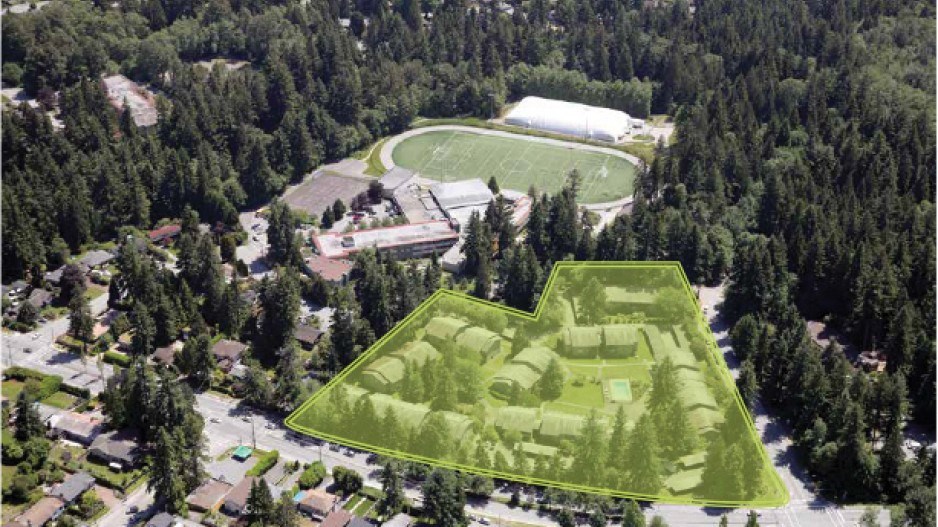Owners of a 114-unit condominium project in North Vancouver have become among the first in B.C. to secure court approval to sell their entire complex to a developer.
The BC Supreme Court approved Anthem Properties’ $51 million bid for the 6.5-acre Seymour Estates project on Lytton Street in North Vancouver district in December. The transaction closed in late January.
Justice Lisa Warren noted the sale price is 50% higher than the property’s assessed value of $32 million, according to court documents. This pencils out to an average of $447,368 for each of the 44-year-old units.
Seymour Estates is not a strata complex. It was created as a “common-law condominium corporation” – an ownership model popular in the 1970s that the province has since banned.
Unlike a strata complex, in which each owner individually owns his or her unit in a common-law strata, each Seymour Estates owner has a “fractional interest” in the whole complex.
“The process was the same as selling a strata complex under Bill 40,” said Lance Coulson, senior vice-president of CBRE in Vancouver.
Coulson brokered the sale with Jim Szabo, CBRE vice-chairman of capital markets.
However, there are some key distinctions for what is an unusual ownership arrangement. The judge’s decision in the Seymour Estates case was based on the Partition of Property Act, an arcane piece of B.C. legislation that decides on the sale of all or part of real estate jointly owned by several parties.
However, the sale of the Seymour Estates complex mirrors the potential effect of Bill 40 for many strata corporations facing similar challenges.
Bill 40, which became law in July 2016, relates only to strata corporations. It lowers the required threshold to 80% from 100% for strata corporation members to vote to dissolve their entity and sell their buildings.
The first strata wind-up to use Bill 40 and head to court is Twelve Oaks, which BIV first wrote about in January and then noted on February 20 that the project remains mired in court delays. Another project that has filed a petition at British Columbia Supreme Court is the Brandywine project in Coquitlam.
The Seymour Estates vote was close to 90%, but still required a court judgment to proceed.
According to Coulson, the Seymour Estates land would be allowed a density range increase from the current 0.75 FSR (floor space ratio) to 1.2 to 1.7 under the District of North Vancouver official community plan for the area.
CBRE is recognized as a leading agency in Bill 40 transactions and is often approached by strata corporations.
However, Szabo said, condominium owners must be realistic in the increased value they expect to achieve.
“If the land lift is less than 25%, it may not be worth it,” Szabo said.
He advised condo owners to consult the official community plan for their neighbourhood to see what level of density is allowed and to consider access to transit, the amount of land and other factors in deciding whether a project would be attractive to a developer.
Seymour Estates owners received more than a premium price for their units, and a chance to escape ongoing repair bills on the aging complex. Under the terms of Anthem’s offer, owners have the right to buy back into the building at a discount and can rent their units back from the developer at discounted rates for 18 months after the deal closed.
According to CBRE, the deal achieved one of the highest prices ever paid for residential land in the district of North Vancouver.




